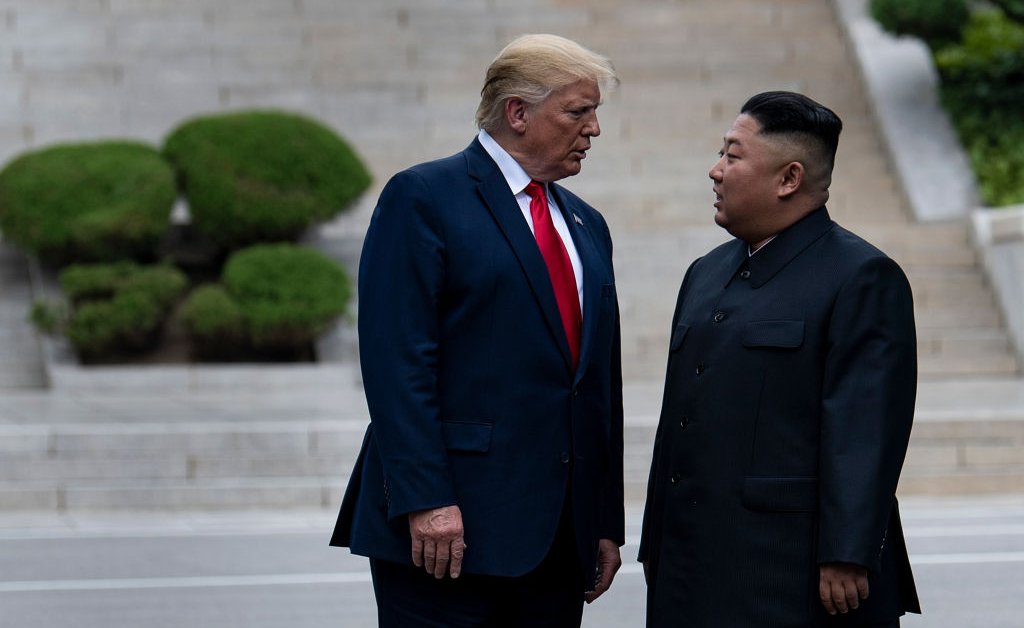Lee comes from the “progressive” camp, which has historically been more willing to offer Pyongyang concessions and aid. Yet his more conciliatory approach has so far elicited scorn or silence. Alas, that is likely to remain the case.
Read More: The Meaning of Lee Jae-myung’s Election Triumph
The reasons are straightforward: for the time being, the North Korean side has nothing to gain from warmer ties. For decades, Pyongyang regarded South Korea primarily as a source of billions of dollars in economic support. To put it bluntly, North Korea treated the South as a state-sized ATM—especially when progressive administrations were in power.
But North Korea has been subjected to a very strict U.N. sanctions regime since 2017. This U.S.-led effort is aimed at preventing North Korea from financing its nuclear program, and has made large-scale economic cooperation between Seoul and Pyongyang virtually impossible.
Judging from the North’s perspective, therefore, improving ties with Seoul serves little purpose: the old ATM is broken.
It is true that U.N. sanctions did not ban humanitarian assistance or some cultural activities, but this is not what North Korean leaders want. They see cultural or other non-economic exchanges as harmful to the hermit kingdom, given the 30-fold gap in per capita GDP between the two Korean states. Awareness of South Korea’s prosperity and freedoms inevitably raises questions about whether the North Korean system is truly superior and whether their leaders are as wise as they claim.
Moreover, Pyongyang is not as desperate for South Korean aid as it once was. Arms sales worth an estimated $20 billion and steady economic support from China have helped cushion its troubles—at least for the time being. Pyongyang would also prefer to not look weak by accepting humanitarian aid it can now do without.
What the North wants is money and material assistance, without strings attached and presented as tribute not aid. No doubt, the Lee administration is quite happy to provide such assistance, be it joint industrial or tourist projects like the Kaesong Industrial Zone pursued in the past. But South Korea is not going to openly violate the U.N. sanctions regime.
That is why any serious shift in inter-Korean relations requires the lifting—or at least the meaningful relaxation—of U.N. sanctions. This is a step only the U.S. could engineer, and in practice only Donald Trump might attempt.
During his first term, Trump came quite close to forging such a deal with Pyongyang. At the February 2019 U.S.-North Korea summit in Hanoi, the two sides discussed a formula under which North Korea would agree to dismantle its major nuclear facilities. In return, the U.S. was expected to back a revision of U.N. sanctions policy—a move that other members of the Security Council would have been unlikely to oppose once Washington gave its consent. But in the end, the two sides failed to agree on the details, and the Hanoi summit collapsed.
It is possible, however, that negotiations will resume shortly; some U.S. officials have recently dropped hints about the prospects of renewed engagement with Pyongyang, and even Trump himself said a couple of months ago that he had a “good relationship” with Kim Jong Un and hoped to “solve the conflict” with North Korea.
If negotiations do begin, there remains a genuine, but limited, chance of success. North Korea will not, under any circumstances, relinquish its nuclear arsenal. Yet from Pyongyang’s perspective, there is a certain logic in pursuing a nuclear arms control agreement (if it comes with the right perks). Such a deal could offer the regime a means of easing its heavy reliance on China and Russia, the only two countries that are willing to ignore the U.N. sanctions regime when dealing with North Korea. The North Korean leadership regards such dependence as burdensome, especially regarding China.
In any case, progress in inter-Korean relations ultimately hinges on direct U.S.–North Korea talks. Only if those negotiations succeed will Seoul and Pyongyang be able to move forward. And that remains, at best, a very big if.








